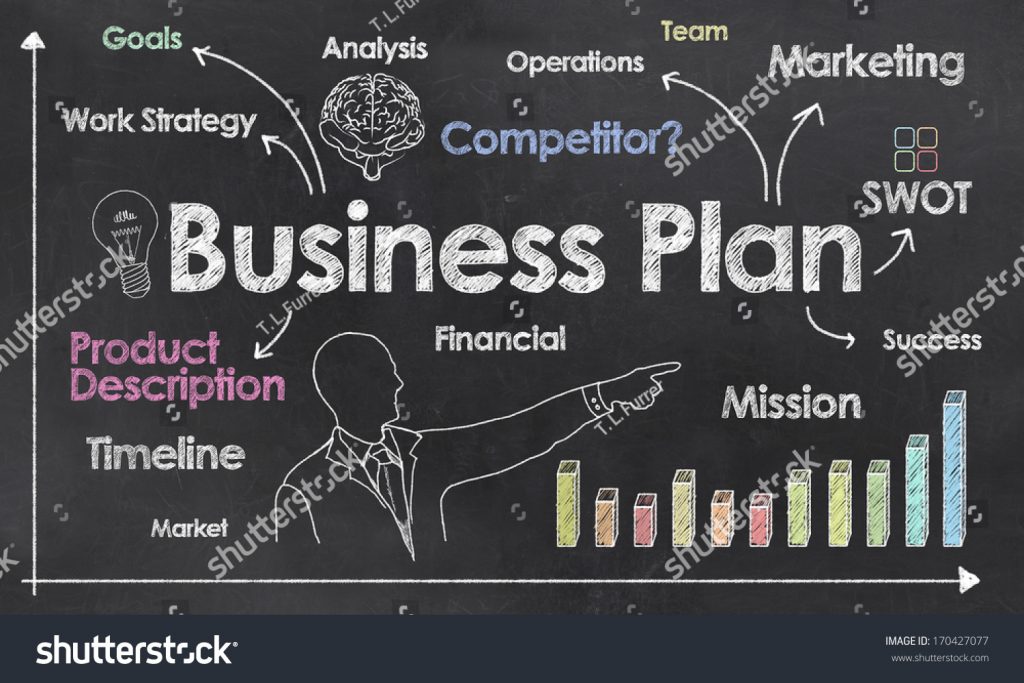Business plans are one of the most important things that entrepreneurs must take into account, and without their ideas will be met with failure because they seem unprofessional and lack the basics of entrepreneurship.
We hope today that this introduction will give you a brief overview and definition of what a business plan is and how to prepare and benefit from it not only to get money from investors but also to understand your project better.
First, let us define the business plan in a simple manner: it is a written description of the future of the work and the company. Yes, it’s that simple. All it takes is a document that describes what the founder intends to do and how they plan to do it.
The benefit of writing a business plans
Many forget that the most important benefit of writing a business plan is to understand the work being done more by the entrepreneur, and to pinpoint its strengths and weaknesses.
In addition to this, the preparation of the business plan helps explain the idea of the company for a large number of people easily. It is enough to distribute the written document between them to learn the most important characteristics that characterize this work. Finally it can be used to communicate the founder’s vision to investors to convince them to give money and time in to make this idea a reality.
Read also: Top 10 business incubators in the Arab world
Sections of the Business Plans

Sections of the Business Plan
The business plan contains information about your goals and the strategies you will use to achieve these goals. You will also find potential problems that your business may face and ways to resolve it, the organizational structure of the work (including individual responsibilities), and finally, the amount of capital required to finance and sustain your project.
These can be divided into three main sections:
- The first section is the business concept: how the product (or service) functions, a description of it as well as the organizational structure, and what strategies will be used to make your business successful.
- The second is the market segment: in which you describe and analyze potential customers: who and where they are, what makes them buy and so on. Here, you also describe the competition and how you’ll position yourself to beat it.
- Finally, the financial section: which includes income, cash flows, balance sheet and other financial ratios, such as break-even analyses. The financial section also includes the Cost Structure, and here all the costs needed to operate the business model may be fixed or variable.
These three sections are divided into seven more specific and detailed sections (we promise you this is the last division ^ _ ^), and then it can be said that the ideal business plan should contain the following seven sections:
- Executive Summary
- Business description
- Market strategies
- Competitive analysis
- Design and development plan
- Operations plan and management
- Financial plan
In addition to these sections, a business plan should also have a cover, title page and table of contents.
Who Needs a Business Plan?
Start-ups: The entrepreneurs who start their startups are the most in need of writing a business plan, and we have explained why.
Companies changing their business model: The company does not necessarily have to be a new one. Business plans can be used when a big change occurs. The new plan is designed to understand these changes and make them clearer to customers and investors.
Businesses seeking to grow: Medium-sized enterprises and companies may develop plans to help them find funding for growth. Although getting financing is easier for an already established company, a written plan can be a valuable tool to communicate vision and business prospects to customers or suppliers or others.
In the first and second cases, the process closer to updating the existing business plan, and this can happen in a number of cases such as:
- A new financial period is about to begin.
- The company needs additional financing.
- There’s been a significant market change.
- The company develops or adopts a new product.
- Significant change in management.
- The old plan does not reflect the company well.
Finding the right business plan

The business plans vary according to the entrepreneur, and although they share the seven main sections mentioned above, there are advantages that make a plan more desirable for an entrepreneur than others. So we will list the types of business plans and who is the business or company that fits this type.
The Miniplan:
A miniplan may consist of one to 10 pages and should include at least cursory attention to such key matters as business concept, financing needs, marketing plan and financial statements, especially cash flow, income projection and balance sheet.
This is a great way to quickly test a business concept or measure the interest of a potential partner or minor investor.
This plan is useful to entrepreneurs during the concept study phase, or to join a business incubator or through a community campaign. However, it should not be adopted while reaching an important investor.
The Working Plan:
This business plan is longer than the previous one and more formal, and can be relied on mainly through the stage of operation within the company, as it contains the details of the work.
This plan is used within the company, so there is no need to include an extension that contains biographies of key executives, or product images, for example.
The Presentation Plan:
Is a comprehensive work plan that includes everything related to the work (the seven main parts), as well as product images, an annex containing CVs, and all other information that investors may ask about.
This plan fits the stage of presentation to bankers, investors and others outside the company, with the aim of obtaining investments.
This plan should be as formal as possible, that is, you must use standard business vocabulary, deleting the unofficial, colloquial or abbreviated terms used within the company.
In conclusion
The business plan is a great tool for understanding the work and communicating the founder’s vision to investors and potential partners. Entrepreneurs should start preparing their own business plans.

